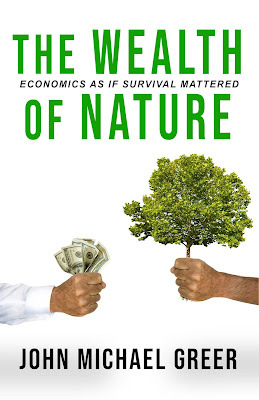An Utterly Serious Warning
May. 18th, 2024 04:06 pm There's an old Wall Street legend that came to mind today...
There's an old Wall Street legend that came to mind today..."In 1929, at the height of an economic boom in America, Joseph Kennedy Sr. (father of JFK) was working as a stockbroker on Wall Street. As the story goes, Joseph was walking around when he decided to sit down for a shoeshine. While polishing his shoes, the young worker gave Joseph some of his favorite stock picks. When Joseph heard the shoeshine boy giving out stock tips, he figured the party was about to end, and it was time to get out of the market. Joseph proceeded to exit his positions in the market and bought short positions that bet on the market going down. Shortly after that, the stock market entered a free fall." (Source)
The reason this came to mind is that I get therapeutic massage regularly these days, and my massage therapist mentioned today that she is getting into real estate investing. She's an extremely capable massage therapist -- but then I'm sure the shoeshine boy who did old Joe Kennedy's shoes was good at his trade, too. The rule remains the same: when people who have no previous background in investing start piling into some investment vehicle, a speculative bubble is in full swing, and will collapse catastrophically in the not too distant future.
I watched this same thing happen in real estate about a year before the 2008 real estate bust hit. When that arrived, everyone I knew who'd gone piling into real estate ended up in the bankruptcy courts. I also watched it in the stock market about a year and a half before the 2000-2001 internet bust hit, and a lot of people who'd put everything they had into interrnet stocks lost it all.
So, dear readers, if you find you're suddenly thinking about putting a lot of money into real estate investment, may I offer a piece of advice? You'd be better off shredding it all and flushing it down the toilet. Don't let yourself get suckered, because the market will sucker punch you.
Oh, and while you're at it, get ready for a whopping economic crisis, possibly as soon as this fall. The Dow Jones just hit an all time record, btw, and speculative investments are soaring while the productive economy lurches further and further into dysfunction. We're probably going to be in for a world of hurt within a year or so. Brace yourselves...
 And another podcast -- and for a change, it's on the other side of my work. This time I'm with futurist Tim Ventura, talking about catabolic collapse. It's a good crisp conversation, not least because Tim's got a solid business background -- that's his logo to the left -- and so understands that collapse is ultimately an economic process; we were able to get into some of the nuts and bolts of the process by which civilizations fall. Check it out
And another podcast -- and for a change, it's on the other side of my work. This time I'm with futurist Tim Ventura, talking about catabolic collapse. It's a good crisp conversation, not least because Tim's got a solid business background -- that's his logo to the left -- and so understands that collapse is ultimately an economic process; we were able to get into some of the nuts and bolts of the process by which civilizations fall. Check it out  It's been a while since I paid close attention to the market for financial gimmickry -- yeah, I know, I've been slacking, spending too much time watching pandemics and wars -- so I missed the opening rounds of a familiar story. People outside the realm of high finance ("high," in this case, meaning something not too far from "stoned out of their gourds") doubtless haven't heard of collateralized loan obligations, aka CLOs, but there's a fairly good chance that all of us will hear a great deal about them sometime in the next couple of years or so.
It's been a while since I paid close attention to the market for financial gimmickry -- yeah, I know, I've been slacking, spending too much time watching pandemics and wars -- so I missed the opening rounds of a familiar story. People outside the realm of high finance ("high," in this case, meaning something not too far from "stoned out of their gourds") doubtless haven't heard of collateralized loan obligations, aka CLOs, but there's a fairly good chance that all of us will hear a great deal about them sometime in the next couple of years or so.  I'm delighted to announce that the print edition my book on ecological economics, The Wealth of Nature, is now availabl4e despite a flurry of production delays. (It's not just toilet paper that's had shortages.) The publisher, Founders House, has had to move operations to a new printer and make new arrangements for sales and shipping. The new page for ordering copies of The Wealth of Nature is
I'm delighted to announce that the print edition my book on ecological economics, The Wealth of Nature, is now availabl4e despite a flurry of production delays. (It's not just toilet paper that's had shortages.) The publisher, Founders House, has had to move operations to a new printer and make new arrangements for sales and shipping. The new page for ordering copies of The Wealth of Nature is  Once again I'm on the Hermitix podcast with host James Ellis, but this time we're talking about something a little different: the economic ideas in my book The Wealth of Nature: Economics as if Survival Mattered, which is currently out of print but will be reprinted sometime soon (fingers crossed!) in a new edition from Founders House.
Once again I'm on the Hermitix podcast with host James Ellis, but this time we're talking about something a little different: the economic ideas in my book The Wealth of Nature: Economics as if Survival Mattered, which is currently out of print but will be reprinted sometime soon (fingers crossed!) in a new edition from Founders House.